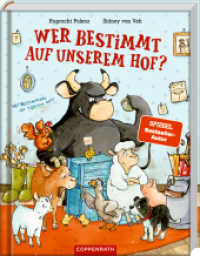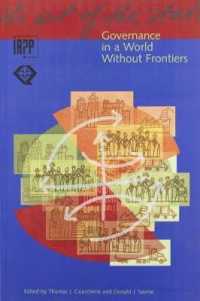基本説明
New in paperback. Hardcover was published in 2007. "This is a book that must be read by people interested in the economics of poverty and hunger, or in the politics of authoritarianism, or in the role - and the difficulties - of international assistance. It is an admirable contribution on a truly important subject." - From the foreword by Amartya Sen.
Full Description
In the mid-1990s, as many as one million North Koreans died in one of the worst famines of the twentieth century. The socialist food distribution system collapsed primarily because of a misguided push for self-reliance, but was compounded by the regime's failure to formulate a quick response-including the blocking of desperately needed humanitarian relief. As households, enterprises, local party organs, and military units tried to cope with the economic collapse, a grassroots process of marketization took root. However, rather than embracing these changes, the North Korean regime opted for tentative economic reforms with ambiguous benefits and a self-destructive foreign policy. As a result, a chronic food shortage continues to plague North Korea today. In their carefully researched book, Stephan Haggard and Marcus Noland present the most comprehensive and penetrating account of the famine to date, examining not only the origins and aftermath of the crisis but also the regime's response to outside aid and the effect of its current policies on the country's economic future.
Their study begins by considering the root causes of the famine, weighing the effects of the decline in the availability of food against its poor distribution. Then it takes a close look at the aid effort, addressing the difficulty of monitoring assistance within the country, and concludes with an analysis of current economic reforms and strategies of engagement. North Korea's famine exemplified the depredations that can arise from tyrannical rule and the dilemmas such regimes pose for the humanitarian community, as well as the obstacles inherent in achieving economic and political reform. To reveal the state's culpability in this tragic event is a vital project of historical recovery, one that is especially critical in light of our current engagement with the "North Korean question."
Contents
List of Figures List of Tables List of Abbreviations Foreword, by Amartya Sen Preface 1. Introduction: Famine, Aid, and Markets in North Korea Part I. Perspectives on the famine 2. The Origins of the Great Famine 3. The Distribution of Misery: Famine and the Breakdown of the Public Distribution System Part II. The Dilemmas of Humanitarian Assistance 4. The Aid Regime: The Problem of Monitoring 5. Diversion 6. The Political Economy of Aid Part III: Dealing with a Changing North Korea 7. Coping, Marketization, and Reform: New Sources of Vulnerability 8. Conclusion: North Korea in Comparative and International Perspective Appendix 1: Illicit Activities Appendix 2: The Scope of the Humanitarian Aid Effort Appendix 3: The Marketization Balance Sheet Notes References Index








